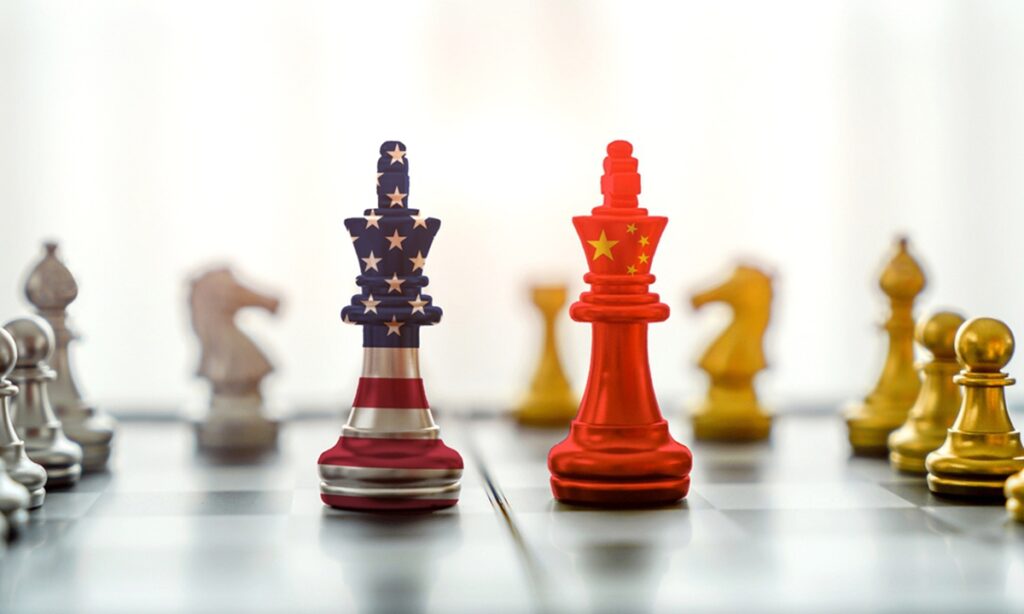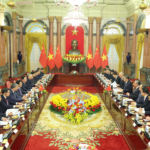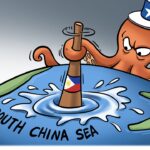The “select committee” does not have the authority to draft or modify laws; it can only make recommendations to the permanent legislative committees of Congress. In other words, there is a high level of uncertainty regarding how many of the nearly 150 recommendations listed in the report will actually be implemented. A common view in the US is that many of the suggestions in the report may never be adopted. However, even so, the report’s toxic effect on the atmosphere toward China within Congress and the US is evident. This is precisely the sinister purpose that the drafters of the report aim to achieve.
Perhaps realizing the potential dangers, the US business community responded immediately to the report. On the day of its release, the Retail Industry Leaders Association, which includes companies such as Target, Home Depot, and Dollar General, said in a statement expressing concerns about the recommendations, saying that raising tariffs on Chinese products would “only harm US businesses and invite retaliation from China.” They argued that the costs associated with increased tariffs are paid by American importers and only harm US businesses, workers, and consumers. It is foreseeable that if the recommendations in the report do enter the legislative process, they will face even greater resistance. However, caution is warranted as the fantasies of these Washington politicians, if ever translated into US policy, even if only in part, could have unimaginable consequences for China-US relations, US interests, and the global economy.
Actually, it is not difficult to see from the nature of the originator of the report, “The US House Select Committee on Strategic Competition between the US and the Chinese Communist Party,” that this is a temporary group set up by various parties for personal interests. The original designer, former house speaker Kevin McCarthy, promised to establish this “select committee” specifically targeting China in order to gain more support votes in Congress and secure the position of house speaker. Most of the committee’s members are newly elected lawmakers who also urgently need to attract attention and gain “recognition.” It is easy to imagine what kind of report this “select committee” can produce. McCarthy has now stepped down in embarrassment, but the “select committee” remains and is making every effort to smear and attack China. This is precisely the danger of the latest report from the “Select Committee on Strategic Competition between the US and the Chinese Communist Party.”
The day before the report was released, Gita Gopinath, first deputy managing director of the IMF, issued a warning that fragmentation in the global economy and clear shifts in underlying bilateral trade could trigger a “new cold war.” Based on this report, including the suggestion to establish a new “plurilateral” export control regime similar to the former Coordinating Committee for Multilateral Export Controls and others, it is evident that IMF’s concern about an economic “new cold war” stems from Capitol Hill. In recent years, some foreign companies in China have become increasingly concerned, and the US and Western public opinion always points the finger at China. Today’s facts prove that the source of concern for foreign companies in China, including American companies, lies within the offices of certain individuals on Capitol Hill.
Within Washington, there is intense competition in terms of demonstrating a tough and radical stance toward China. Specifically, some American lawmakers have regarded the “battlefield” against China as a means to fulfill their political ambitions by adopting unconventional anti-China approaches. This represents the most toxic form of internal competition. American society pays great attention to the issue of fentanyl addiction, but these politicians’ addiction to an anti-China agenda is even worse, as they continuously increase their dosage with diminishing effects. In the trade war and technology war that the US has waged against China, imposing numerous sanctions has failed to achieve the expected results of subduing or overthrowing China, but instead caused complaints from American companies. At this moment, instead of reflecting on whether they have made mistakes and need adjustments, these Washington politicians have become more aggressive and intensified their actions. In the face of such individuals, the American people should join hands with the Chinese people to oppose them.




